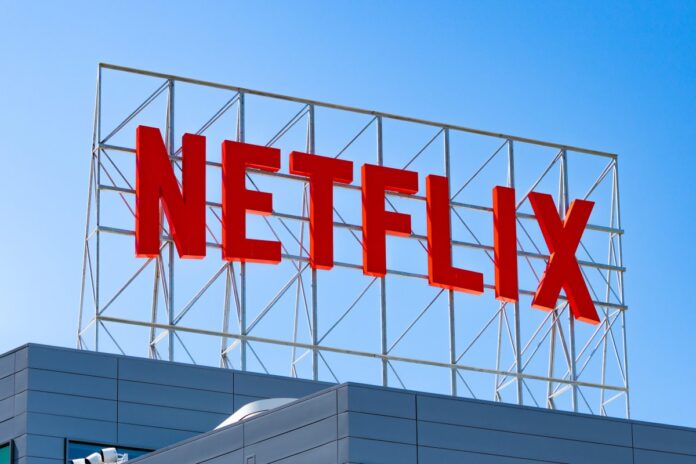Netflix Embraces Generative AI: What It Means for the Future of Filmmaking
In an era where technology is rapidly changing the way we create and consume content, Netflix is taking bold strides forward. Recently, the streaming giant released its quarterly earnings report, and mixed in with the numbers and projections was something that caught many people’s attention: a declaration of support for generative AI in filmmaking. But what does this mean for the industry? Let’s dive into this fascinating topic!
What is Generative AI?
Before we get into Netflix’s plans, let’s break down what generative AI actually is. Imagine a computer program that can generate text, images, sounds, or even video. This technology uses complex algorithms and vast amounts of data to create new content that resembles what it has learned from existing works. It’s almost like having a digital assistant that can come up with ideas based on patterns it sees, making it a powerful tool in creative industries.
Netflix’s Strategic Use of AI
Netflix isn’t planning to let AI take over the creative process. Instead, they view it as a supportive tool to help filmmakers enhance their storytelling. “It takes a great artist to make something great,” said Netflix CEO Ted Sarandos during an earnings call. This perfectly sums up their approach: while AI can provide better tools, it’s the human touch that breathes life into stories.
Earlier this year, Netflix made headlines by employing generative AI for the first time in its show “The Eternaut.” They used AI to create a dramatic scene where a building collapses. This is just the beginning. In other projects like “Happy Gilmore 2” and “Billionaires’ Bunker,” AI has been used in creative ways. Whether it’s making characters look younger or imagining wardrobe and set designs, AI is transforming the behind-the-scenes work of filmmaking.
The Creativity Debate
Artificial intelligence has stirred up quite a bit of debate in the entertainment industry. Many artists have expressed concern that AI, especially when trained on existing works without consent, could negatively impact their jobs. It raises troubling questions about authorship and creativity. Is AI taking work away from humans, or is it simply another tool in the artist’s toolkit?
While concerns are valid, Sarandos reassures us that Netflix isn’t looking to replace human creativity. They’re committed to using AI to help creatives tell stories more efficiently and in innovative ways without just chasing novelty. This is a refreshing perspective in a landscape that often feels threatened by technology.
AI’s Role in Special Effects
Interestingly, Netflix appears to be taking a cautious approach, opting to leverage AI primarily for special effects rather than replacing actors. While there are rumors of AI-generated actors, there’s still a long way to go before that becomes a reality. So far, most studios focus on enhancing visual effects, which could change how films look while still employing human talent in front of the camera.
However, this reliance on AI for effects has its own implications. Visual effects jobs could be impacted as technology becomes more sophisticated. It’s something to keep an eye on as the industry evolves.
The Challenge of Ethical Use
The ethical implications of AI in filmmaking were thrown into the spotlight recently when OpenAI released its Sora 2 audio and video generation model. This tool, lacking necessary guardrails, raised concerns about the potential for deepfaking. Several actors, including Bryan Cranston, have voiced their worries and called for stricter regulations to prevent misuse.
Sarandos addressed these concerns during the earnings call, stating that he’s not overly worried about AI overshadowing creativity in movies and TV. It’s a bold claim, but the reality remains that as technology progresses, so will the conversations around ethics and creativity.
The Bigger Picture: Impacts on Revenue
So, what does this all mean for Netflix’s bottom line? In the same quarterly report, Netflix reported a 17% year-over-year revenue increase, reaching $11.5 billion. While this is impressive, it fell short of the company’s own forecasts, prompting some discussions about how they can innovate further.
Being a leader in this technology could potentially give Netflix a competitive edge. By using AI to streamline production, enhance storytelling, and possibly reduce costs in certain areas, they might just keep their edge in a fierce streaming market.
Why This Matters to Us
So why should we, as viewers and fans of storytelling, pay attention to this shift towards AI in filmmaking? Well, it’s more than just fancy technology or cool special effects. It’s about the stories we love and how they evolve. Will we see even more creative expression, or will we lose the personal touch that makes stories resonate?
Generative AI has the potential to open doors for filmmakers—both seasoned pros and newcomers looking for new ways to tell their stories. Imagine a future where AI helps craft richer storylines, creates more engaging visuals, and allows smaller, independent filmmakers to access tools that were once out of reach.
The Takeaway
As we watch Netflix navigate this new terrain, it’s clear that they are standing at the intersection of technology and artistry. They are not abandoning the storytellers; instead, they are looking to support them in their craft. The evolution of filmmaking through AI could lead to fascinating new forms of storytelling, but only time will tell how these changes will unfold.
In conclusion, embracing generative AI might just be the key for Netflix and other studios to thrive in a competitive landscape. As technology advances, the stories we love may take on new dimensions, guided by the talented hands of those who know how to wield these new tools. Let’s keep an eye on this space because the future of storytelling is likely to be more innovative and compelling than we can imagine!

